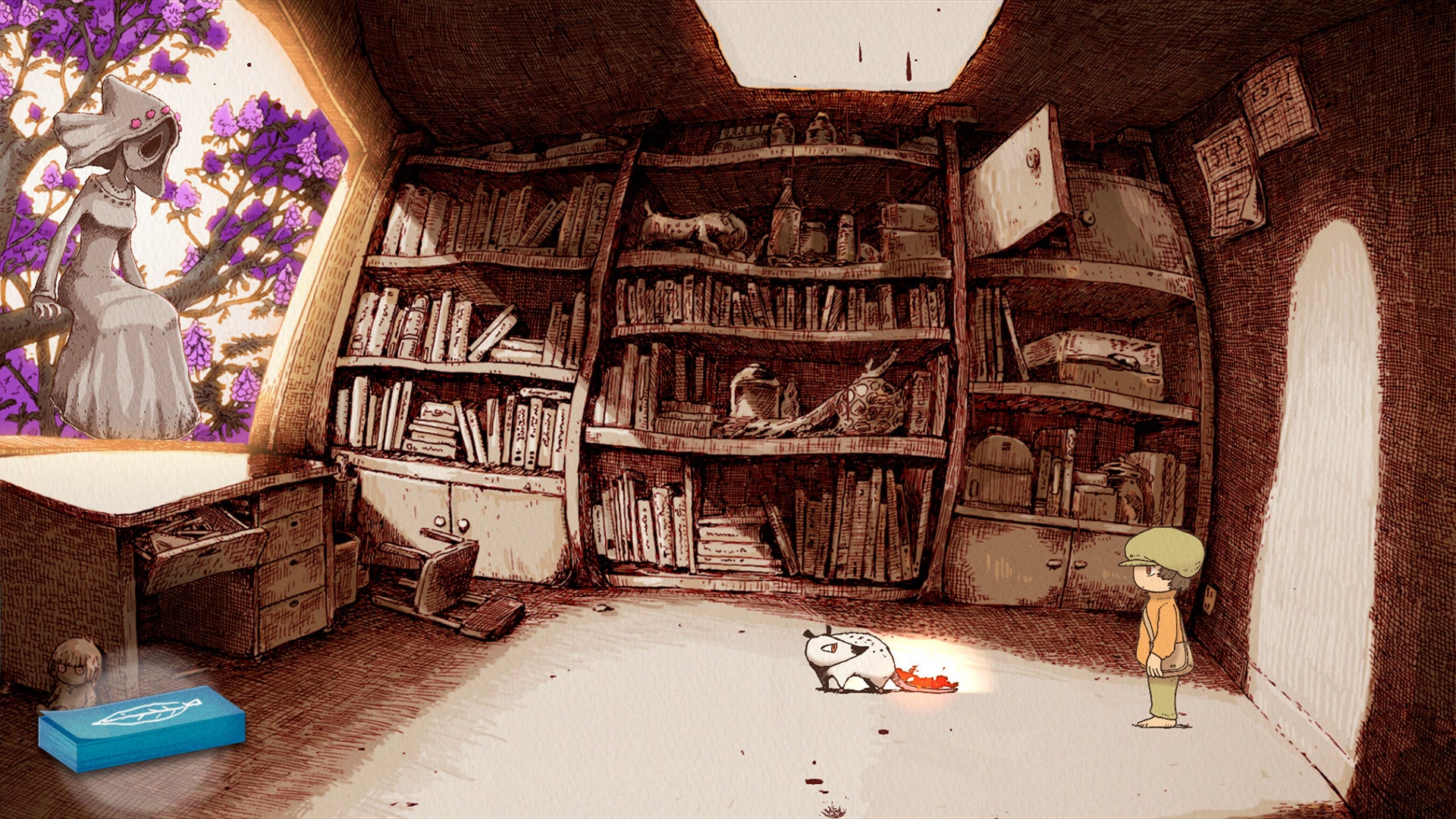Still, these comparisons aren’t entirely unwarranted. The game takes inspiration from the children’s books of German writer Michael Ende, whose escapist worlds are world-renowned thanks to works such as The Neverending Story. In a moment of cross-cultural pollination, this game is the product of Kyoto-based developer room6 and publisher G-Mode, who are hoping to create a game that can also share lessons of wisdom to the children and adults who encounter it. Our silent protagonist awakens in a riverbed void of memories of his past and how he got there, slowly wandering the land in search for answers. On the lost beach is where they run into Sally, the opossum with a flaming tail, becoming fast friends as you go searching together for your lost memories. Yet that doesn’t mean you should make haste; during my hands on demo with the game, Sally stopped me on the beach at one point to catch shooting stars, asking how many I got at the end of it. The moment itself didn’t have much bearing on the story, but these quiet moments of pause give OU space to breathe, letting players interact and create memories with the world around them. The true nature of this world is kept vague, however. It’s presented like the pages of a picture book - you enter water to turn its pages and sketch out the next part of the story. You’ll encounter creatures and inhabitants both friend and foe on your journey, although you won’t be fighting with anyone who crosses your path. Instead, OU has nothing more than sticky notes to accompany him here, and beyond interacting with various animal inhabitants, these notes are your only way of interacting with the world around you. You’ll mainly be sticking them on objects to solve basic puzzles, but you can also paste them to regular objects like trees to learn more about their history. Again, it’s all about giving the player space to take an interest in their environment, understand where they are and maybe make some more memories along the way. OU may feel powerless when all they can do is throw out post-it notes, but during my demo, they never felt like they were in danger. True to the game’s intent and the Ende stories that inspired it, this feels purposeful. You’re left to absorb the world around you rather than rush through it or destroy it, trying to understand rather than beat down what stands in your way. Accompanied by the simple yet soothing music of composer Shiiba Daisuke, more recently involved in the far-different experience of Stranger of Paradise: Final Fantasy Origin, it’s like being transported back to a childhood state of innocence and obliviousness, with much to learn. Based on my Bitsummit demo, OU is a fascinating if mysterious title. It’s an experience that deliberately purges itself of distraction, letting players take note of the little things and luxuriating in the moment, whether that be a small band, a plant, or a shooting star. It has been described as a game about ‘something’, but that at least feels like something worth seeking out. Maybe its scheduled 2022 release date on Steam will bring us some answers.


